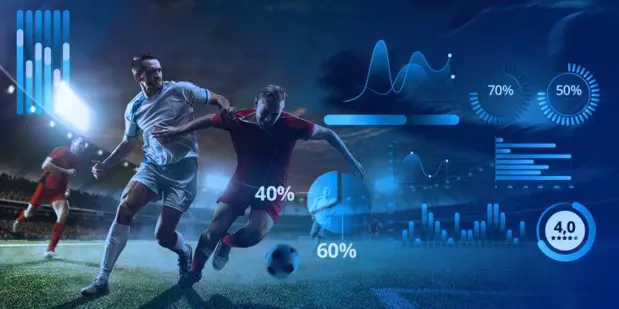How Tech Is Changing the Game: The Rise of Smarter Sports Fans
How Tech Is Changing the Game

The modern sports landscape has evolved beyond the pitch, the court, and the stands. Fans are no longer passive observers — they have become active participants in a tech-driven ecosystem that merges entertainment, analytics, and real-time engagement. Artificial intelligence, predictive modeling, and interactive mobile platforms have given rise to a generation of “smart fans” who process live data, evaluate performance metrics, and even predict plays as they unfold.
The Smart Fan Era Has Arrived
Over the past decade, digital transformation has turned fandom into a connected, data-centric experience. From mobile alerts on player stats to synchronized live streams offering multiple camera angles, technology has transformed how sports are consumed. Fans track metrics such as expected goals (xG) in soccer, player efficiency ratings (PER) in basketball, and win probability charts across every major league in real time.
With second-screen experiences, fans now access live odds, possession maps, and performance dashboards while watching a game. Interactive mobile overlays sync seamlessly with TV broadcasts, displaying advanced metrics per second. Whether it is tracking a quarterback’s pass accuracy or monitoring a tennis player’s serve speed, the second screen has become a core part of fandom
Technology Behind the Modern Fan Experience
Sports tech has borrowed heavily from fintech and streaming models to deliver personalization at scale. AI-powered analytics crunch thousands of data points — from heart rate monitors on athletes to crowd noise decibel readings — to generate instant insights.
Predictive algorithms now simulate outcomes with precision rates surpassing 85%, allowing fans to visualize game results or player substitutions before they happen. Machine learning engines assess historical data to project fantasy points or injury risks. Mobile betting apps integrate these analytics, turning engagement into a fully interactive digital experience.
Data, Access, and Engagement — The New Economy of Sports
The rise of data as a sports commodity has redefined engagement. Fans expect access to everything — from heatmaps and shot charts to real-time salary cap data and win expectancy. Teams and leagues have responded by developing all-in-one digital ecosystems where users can interact, share insights, and even trade virtual assets.
Sports data has become a multi-billion-dollar industry, with rights, metrics, and analytics tools sold to broadcasters, sportsbooks, and fantasy leagues. Interactive dashboards let users manipulate stats mid-game, and wearable integrations feed biometric data straight to fan apps. With data-driven platforms offering insights and sportsbook promos that enhance real-time engagement, fans are no longer just spectators — they are participants in an evolving digital economy.
The Business Behind the Trend
Behind the seamless digital experiences lies a network of commercial partnerships. Sports organizations are signing record-breaking sponsorship deals with tech giants, betting operators, and data analytics firms. These alliances underpin the infrastructure that supports interactive and personalized fan journeys. The NBA, NFL, and Premier League have all entered multi-year contracts worth hundreds of millions with AI analytics and streaming partners. Meanwhile, leagues maintain transparency by integrating responsible tech practices — ensuring data accuracy, anti-fraud protocols, and fair-play standards across platforms
AI-Powered Personalization and the Fan Identity
Artificial intelligence has reshaped how fans experience identity and loyalty. Algorithms curate highlights tailored to a viewer’s preferences, from favorite players to specific matchups. By analyzing engagement history, AI models predict which types of content — post-match breakdowns, goal compilations, or player interviews — keep fans returning. Personalized feeds now serve millions of micro-audiences daily, creating data profiles that make every interaction unique.
Social Media and Predictive Communities
Social platforms have evolved into analytical hubs where debates meet data visualization. Millions of users share real-time reactions supported by AI-enhanced statistics, making social media an extension of the analytical experience.
Predictive engagement features — such as polls estimating game outcomes or AI-driven community leaderboards — encourage fans to interact as analysts. Hashtag challenges and interactive data quizzes push participation rates higher than ever before.
The Economic Ripple Effect of Smart Fandom
Smart fandom has fueled a new digital economy. Global sports tech revenues surpassed $20 billion in 2024, with projections exceeding $35 billion by 2028. Streaming innovations, fantasy leagues, and interactive fan apps account for over 60% of that growth.
Tech integration has generated alternative income for leagues and media companies through microtransactions, subscription-based analytics, and targeted ad placements. The smart fan market has effectively turned engagement into an asset.
Ethics and Responsible Tech Integration
As data becomes central to fan engagement, ethical oversight is vital. Transparency in how data is collected, analyzed, and shared helps maintain trust between fans and platforms. Regulatory frameworks require real-time data verification and encrypted distribution channels. This ensures fairness and prevents misuse of sensitive performance metrics or betting data. Responsible tech integration preserves both fan trust and market integrity.
Smart Fans and Data Literacy
Modern fandom now demands a level of data literacy once reserved for coaches and analysts. Fans read player efficiency ratings, interpret possession graphs, and use expected-value calculations to anticipate results. The democratization of data has empowered fans to become informed contributors to the sports narrative. Communities dedicated to tactical breakdowns or probability modeling reflect a deeper, analytical fandom culture.
The Future of Fandom
The evolution of sports fandom is a story of convergence — where entertainment meets data science. As 5G networks, AR overlays, and generative AI advance, fan engagement will become even more personalized, immersive, and analytical.
Tomorrow’s fan will move fluidly between live streaming, social analysis, and predictive simulations. The “smart fan” is not defined by gambling or speculation, but by interactive, data-literate engagement — a mindset that merges curiosity with connectivity, shaping the next frontier of global sports culture.

